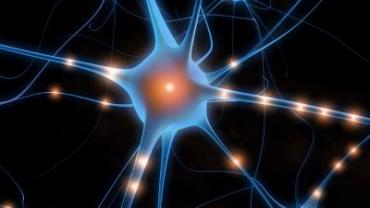
"
In general peripheral neuropathy refers to the nerve damage encountered through various causes including direct trauma and disease to the nerves or secondary damage as a side effect of other disease processes such as diabetes multiple sclerosis chemotoxicity and vitamin deficiencies. Overall the most common cause of peripheral neuropathy is diabetes. Other medical problems that may cause neuropathy are autoimmune disorders such as rheumatoid arthritis or lupus chronic kidney disease infectious states such as HIV and liver infections low levels of the B vitamins poor blood flow to the legs and hypothyroidism.
Symptoms can be highly variable due to the functional specificity of the nerve or nerves affected. Some people who suffer from sensory nerve damage may experience symptoms as wide-ranging as temporary numbness and tingling sensitivity to touch or muscle weakness followed by gait abnormalities. Those suffering from damage to the autonomic portion of the peripheral nervous system may endure organ or gland dysfunction. This may include bladder problems sexual dysfunction and heart and digestive issues.
Identify the point of origin
Due to the multiplicity of causes of nerve damage there have been over 100 types of neuropathy that have been identified in the literature. The nature or origin of the pathophysiology and subsequent development of the neuropathy would make treatment more defined and therefore more efficacious.
For instance central nervous system and neurological symptoms are not unusual in those suffering with celiac disease and gluten sensitivity. In order to ameliorate the primary gastrointestinal response the condition would obviously require appropriate treatment protocols such as minimizing gluten consumption as well as addressing any additional contributing autoimmune factors which may then be the cause of secondary neurological symptomatology.
Nutrient support
Clinically identifying therapeutically useful and effective compounds which can address both the mechanisms of pathophysiology and subsequent symptoms of the condition would be ideal. An example would be the use of olive leaf extract. In diabetes-related peripheral neuropathy olive leaf was shown to inhibit high glucose-induced nerve damage while reducing the pain of thermal hyperalgesia apparently through the reduction of neuron cell apoptosis.
An animal model of direct peripheral nerve injury is nerve transection-induced axonal degeneration. Use of the medicinal herb holy basil reduced various aspects of the injury including axonal degeneration markers of lipid peroxidation and its tissue-damaging effects.
In another study performed using models of direct nerve injury the use of B vitamins was also shown to reduce thermal hyperalgesia a common symptom of these types of injuries.
Acetyl l-carnitine has been shown to be particularly effective in resolving various aspects of nerve injury. A necessary component to nerve regeneration and prevention of nerve death is the preservation of nerve cell mitochondrial function. Peripheral nerve injury compromises nerve mitochondria function. Acetyl l-carnitine was shown to help attenuate mitochondrial damage thus enhancing nerve repair and regeneration. Acetyl l-carnitine was shown to be effective in a variety of nerve injury models including compression injuries. Perhaps this suggests that the compound may be useful in low back pain syndromes caused by spinal nerve compression due to spinal disc degeneration for example.
Finally the polyphenol curcumin has also demonstrated antinociceptive as well as protective properties in various models of neuropathy and nerve injury including dorsal root ganglion and sciatic nerve damage.
For those clinicians specializing in physical medicine or nerve related pain management issues these useful compounds bring with them nerve protective and regenerative qualities as well as antinociceptive properties with significantly reduced issues of side-effects making these substances prime candidates for our patients suffering with troublesome nerve injuries.
by Michael Fuhrman D.C.